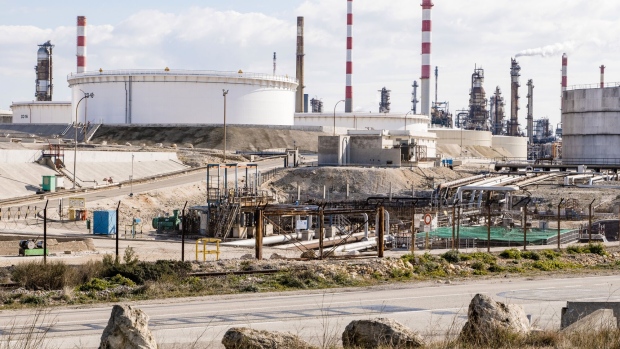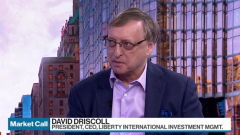Jul 1, 2024
Carmignac Sees Energy Transition Fueling Inflation This Decade
, Bloomberg News

(Bloomberg) -- The transition to a low-carbon economy will fan inflation over the coming decade, according to researchers at Carmignac.
The energy transition will add 1.6 percentage points to developed-market inflation each year, the French investment firm said in a paper based on a scenario where temperature rises are capped at 1.5° versus pre-industrial levels. That’s via a mixture of positive demand and negative supply shocks as the dirtiest fuels are phased out amid huge investment in new technologies.
That impact is still better than unmitigated climate change causing a “permanent state of ‘climateflation’” where weather affects raw material supply and natural disasters hurt supply chains, they said.
“The inconvenient truth is, because of the nature of the economic shocks, the transition will also be inflationary,” Lloyd McAllister, Raphaël Gallardo and Michel Wiskirski wrote in the paper. “Ultimately, central banks are the guardians of price stability, and they will be the ones to decide whether this transitory inflation should be ‘looked through’ at the risk of de-anchoring inflation expectations, or if central banks must lean against it and provoke deflation in other parts of the economy in the name of price stability.”
Carmignac is the latest financial institution to wargame the impact of climate change on global economic growth, inflation and asset prices. Last year, European Central Bank research found climate change will increase global inflation by as much as one percentage point every year as food costs climb.
The Carmignac researchers see a number of different elements from the energy transition creating higher inflation. The largest is what they call “fossilflation,” where the shift away from investing in fossil-fuel infrastructure sees oil prices rise by 20% per year. The increase in headline inflation may even lead central banks to tweak their mandates, the paper said.
“Ultimately, we would not rule out the potential exemption of some climate costs from inflation definitions or lengthening the period during which ‘price stability’ is achievable,” the Carmignac researchers said. “These would only follow after a clear re-anchoring of inflation expectations in the current cycle.”
©2024 Bloomberg L.P.






